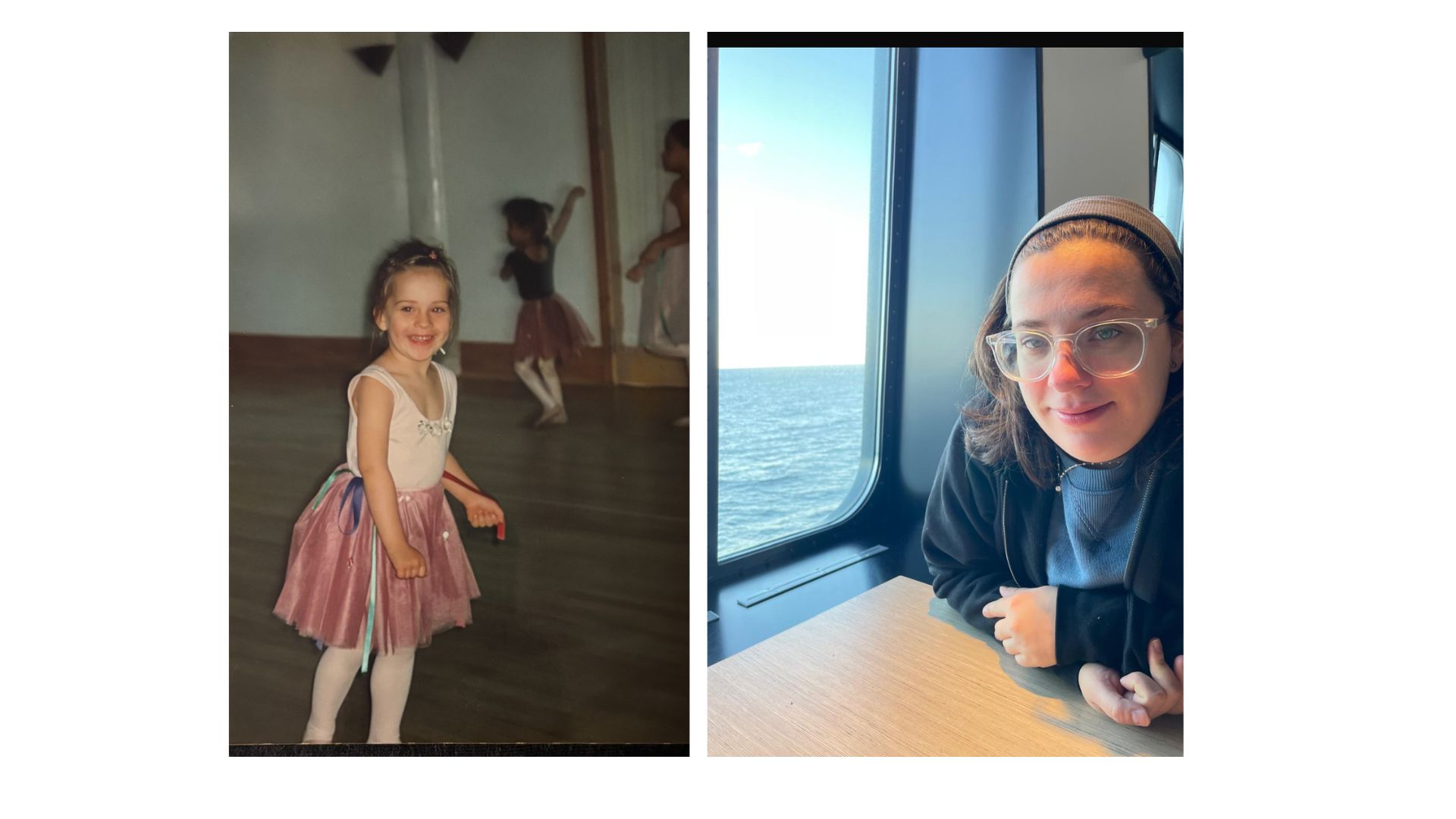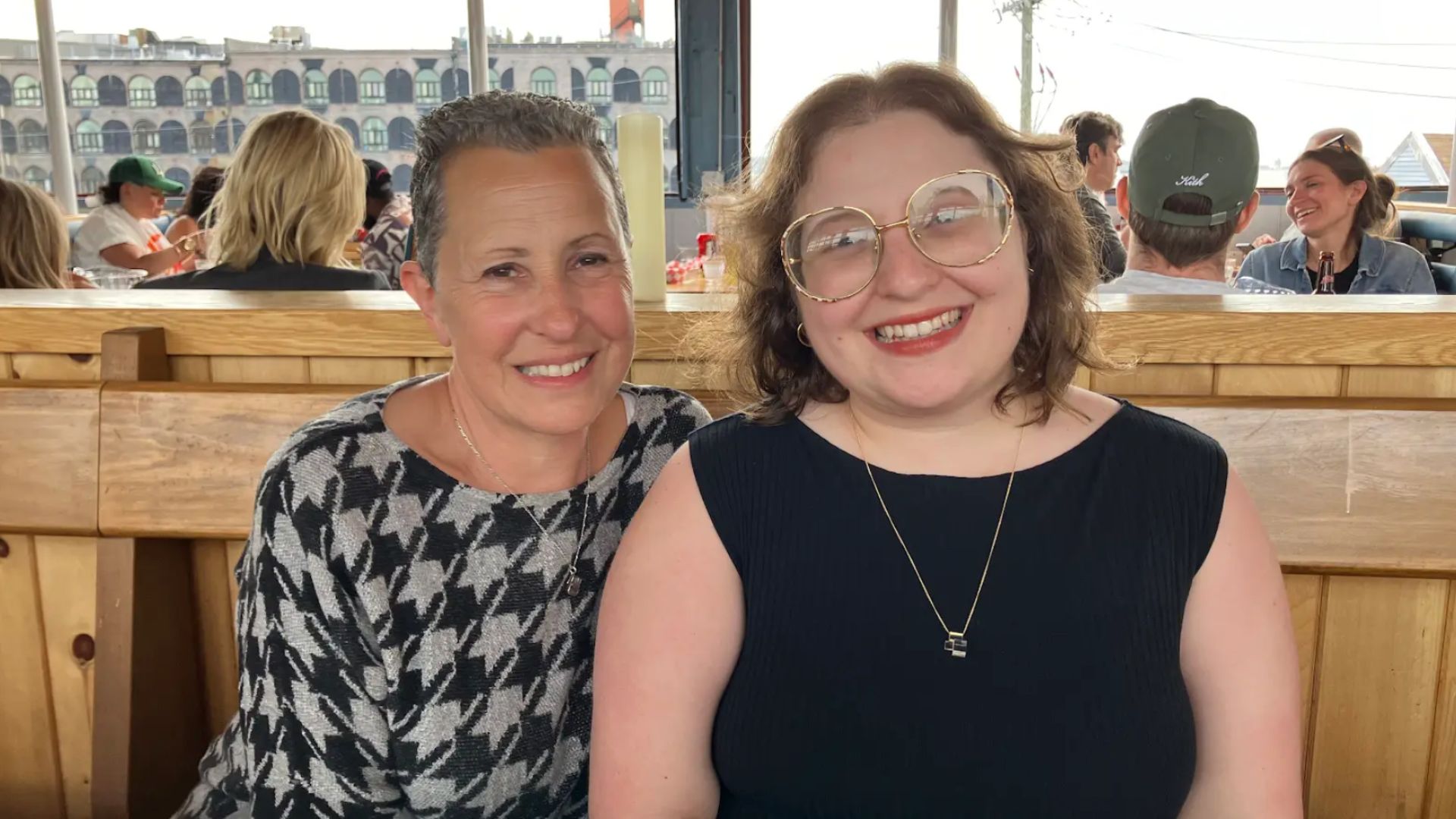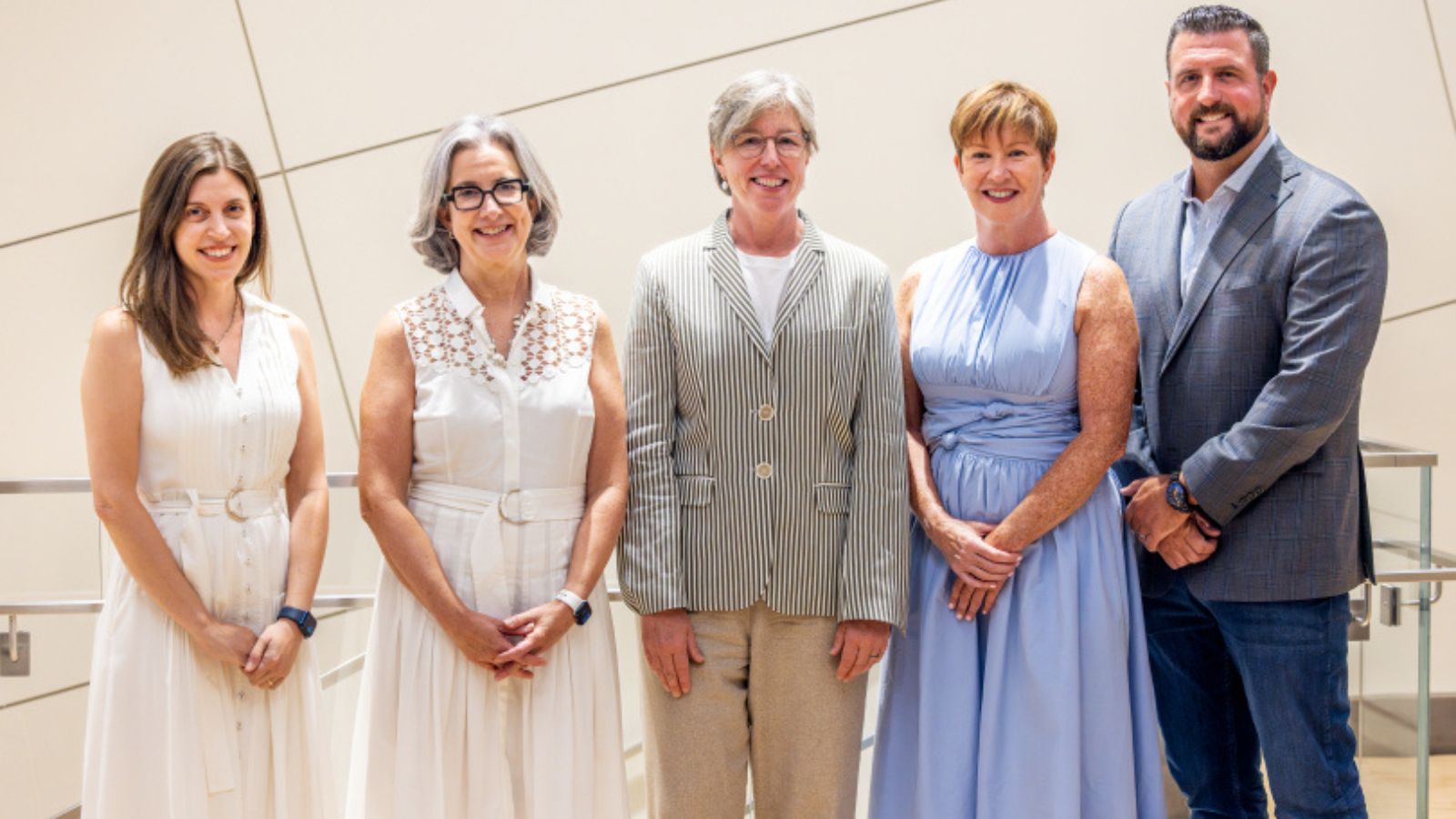Make a donation to the Museum
A Museum Education Specialist Reflects on Childhood Memories of 9/11
A Museum Education Specialist Reflects on Childhood Memories of 9/11
- July 25, 2025

Many of our employees have personal connections to the 9/11 legacy, making their roles here even more impactful. From time to time, we sit down with these staff members to hear about their experiences and what it means to them to be a part of this organization. This month, Thomas Hoffman, a Visitors Services associate, talked to Felicity Richards (above, left, as a child, and today), an Education Specialist who specializes in teaching children about the events of 9/11 and was just four years old the day of the attacks, living in lower Manhattan with her family.
What do you remember about the day?
I remember how bad the dust cloud was. I especially remember asking my dad why was the sky so brown. It didn't make any sense to me. I knew something bad had happened. We had to stay in a hotel because we couldn't go back downtown. I remember how sad adults were, I remember going to vigils, I remember being confused the towers weren't there. I wasn't able to leave the area or go grocery shopping (according to my mom). I remember doing pre-K at home that day, I remember having a pre-school textbook. It was yellow with a gorilla, I was looking at it at around the time the second plane hit. I remember my parents did a good job making sure the news was not on constantly, because they didn't want to see it either. I remember as soon as people were allowed to Ground Zero, we went down there and wrote thank you cards and handed out bottles of water. I was able to go to Ground Zero earlier than most people because we lived within the check points.
Do you remember what you said in the thank you notes you wrote?
I remember writing thank you for your work, whatever my four-year-old self could think of. I loved to draw back then—I definitely drew the sky, probably nature-based. I'm fuzzy on a lot of details, but some things I remember vividly. My favorite memory was leaving the notes in front of a wall. I remember I thought there were millions of thank you notes.
Do you think experiencing 9/11 as such a young child ultimately led you to where you are now?
One hundred percent without a doubt! My parents were really good at explaining to me and my brother what happened. I mean I've always been a history nerd, so museums are a path you would end up taking. This museum fulfilled my history interest but because I love it, because I saw 9/11 happen, it was important to talk to younger generations about it.
Why do you find your current role meaningful?
The idea of keeping the story of 9/11 going, because I work with younger visitors. It's interesting to see what they walk into the Museum knowing, and what they leave with, what additional knowledge.
What's a common question you get from visitors?
A lot of students don't understand the abnormality of the day until they walk into the museum. Seeing what took place when they walk into Foundation Hall, that's when they realize what a massive event it was, what really took place, and why it had such global ramifications.
When someone asks why the day still affects us today, what do you answer?
I usually start with telling students about the establishment of TSA in October of 2001 as the first direct change post 9/11. Then I discuss the ongoing health effects of 9/11. I also talk about the changes in building design post 9/11.
What's the biggest challenge in teaching kids about 9/11? What are some of the ways you make the story accessible to them?
I think a lot of kids come into the Museum and aren't sure why it's important or how it affects them. These things are historic. People don't understand the impact 9/11 had or continues to have. I get the question, ”How does it affect us today?” a lot.
I think hearing stories told by one person breaks down the barrier. Kids relate to what they know, so hearing one person tell a story about what happened to them makes kids think, “Hey this a person who likes me and talks like me, maybe I should listen.” If you look back to when you were a kid, hearing someone tell their own story, it had more impact than hearing an adult talk about it.
What do you hope people take away from their visit to the 9/11 Memorial & Museum?
I want people to understand the abnormality of the event but also that people helped each other, just everyday people doing the best they could.
By Thomas Hoffman, Visitors Services Associate
Previous Post
A Family Affair: Volunteering at the 9/11 Memorial & Museum

For this mother and daughter, the 9/11 Memorial & Museum is more than a place of remembrance—it's a space of shared purpose, intergenerational connection, and community.
Next Post
Our Third Annual Legacy of Service Honors the Work of 9/11 Family Members

Our third annual Legacy of Service evening event honored 9/11 family members Patrick Dowdell, a former U.S. Army Captain, and Patti Quigley, Board Member & Advisor, Razia’s Ray of Hope Foundation.